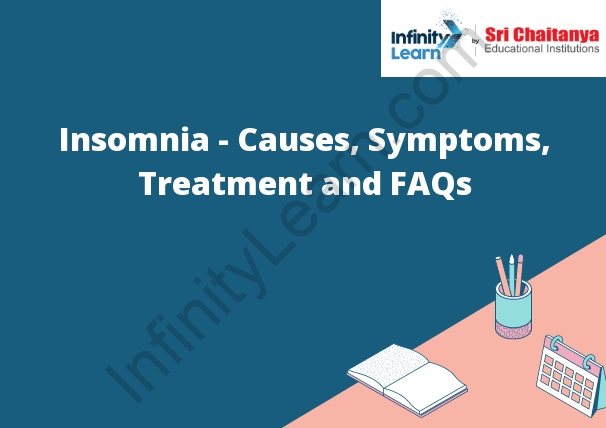Table of Contents
What is Insomnia?
Insomnia is a sleep disorder that is characterized by difficulty falling asleep, staying asleep, or getting quality sleep. People with insomnia often report feeling tired and exhausted during the day.

Insomnia Causes
There are many potential causes of insomnia, including:
• Stress.
• Anxiety.
• Depression.
• Physical discomfort.
• Medical conditions.
• Medications.
• Caffeine.
• Alcohol.
• Smoking.
• Lack of exercise.
Some people may be more likely to experience insomnia due to their lifestyle, health condition, or personal circumstances.
Insomnia Risk Factors
There are many risk factors for insomnia. Some of these include:
• Age – Older adults are more likely to experience insomnia than younger adults.
• Gender – Women are more likely to experience insomnia than men.
• Stress – High levels of stress can increase the risk of developing insomnia.
• Mental health conditions – People with mental health conditions, such as anxiety or depression, are more likely to experience insomnia.
• Physical health conditions – People with certain physical health conditions, such as heart disease, are more likely to experience insomnia.
• Substance use – People who use substances, such as alcohol or caffeine, are more likely to experience insomnia.
• Sleep habits – People who have poor sleep habits, such as going to bed late or watching television in bed, are more likely to experience insomnia.
Fatal Familial Insomnia (FFI)
Fatal Familial Insomnia (FFI) is a rare and fatal genetic disorder that causes a person to lose the ability to fall asleep and eventually leads to death. The disorder is caused by a mutation in the PRNP gene, which is responsible for the production of the prion protein. The prion protein is involved in the brain’s normal functioning, but in people with FFI, the protein mutates and starts to damage the brain. This damage leads to a loss of the ability to fall asleep, and eventually to death. There is no cure for FFI and death usually occurs within 18 months of the onset of symptoms.
Symptoms of Fatal Familial Insomnia (FFI)
FFI is a rare, inherited sleep disorder that leads to death. It is caused by a mutation in the gene that codes for the protein PRNP. This protein is responsible for the transport of copper and zinc ions into and out of neurons. The mutation prevents the protein from working properly, which disrupts the normal sleep-wake cycle. FFI begins with gradual onset of insomnia, which progresses to total sleeplessness. Patients also experience anxiety, depression, and weight loss. As the disease progresses, patients lose the ability to walk, speak, and eat. They eventually die from complications such as pneumonia or sepsis. There is no cure for FFI and no effective treatments are available.
Insomnia Treatment
There are many different treatments for insomnia. Some people may only need a few simple changes to their lifestyle or sleep habits to get relief from their insomnia. Others may need medication to help them sleep.
Some common treatments for insomnia include:
1. Adjusting your sleep habits. This includes going to bed and waking up at the same time each day, avoiding caffeine and alcohol before bed, and avoiding working or using electronic devices in bed.
2. Exercising regularly. Exercise can help you fall asleep and sleep more soundly.
3. Using relaxation techniques before bed. This includes deep breathing exercises, yoga, or meditation.
4. Taking medications to help you sleep. This includes over-the-counter sleep aids or prescription medications.
5. seeing a sleep specialist. If you have chronic insomnia, you may need to see a sleep specialist to help you find the underlying cause and develop a treatment plan.
Cognitive Behavioural Therapy For Insomnia
Cognitive behavioural therapy for insomnia (CBT-I) is a type of psychological therapy that has been shown to be effective in the treatment of insomnia. CBT-I is a goal-oriented, problem-solving therapy that helps people to change the way they think and behave in order to improve their sleep. The goal of CBT-I is to help people to develop healthy sleep habits and to learn how to manage their insomnia symptoms.
CBT-I typically involves meeting with a therapist for a number of sessions. During these sessions, the therapist will help the person to identify the thoughts and behaviours that are keeping them from getting a good night’s sleep. The therapist will then work with the person to develop strategies to address these thoughts and behaviours.
CBT-I has been shown to be effective in the treatment of both chronic and acute insomnia. It is also a relatively short-term therapy, with most people seeing improvement in their sleep within a few weeks.









